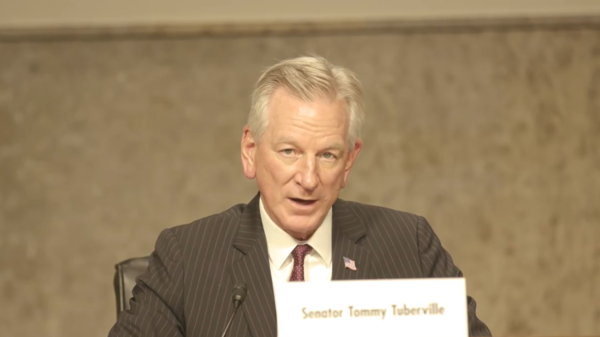|
Getting your Trinity Audio player ready...
|
On Tuesday, Judge Robert Hinkle of the U.S. District Court for the Northern District of Florida issued a ruling on Doe v. Ladapo, a lawsuit brought by transgender Floridians and their families against the Florida state government.
The suit challenged rules banning gender-affirming care for transgender minors and heavily restricting gender-affirming care for transgender adults. The primary bill at issue, SB 254, had already been preliminarily blocked by the Court in June 2023, soon after it was first passed.
Hinkle came down strongly against the defendants in his decision, writing that “the elephant in the room should be noted at the outset. Gender identity is real. The record makes this clear.”
The judge specifically compared laws discriminating against transgender individuals to past laws that discriminated on the basis of race. “Some transgender opponents invoke religion to support their position, just as some once invoked religion to support their racism or misogyny,” he wrote.
Hinkle also questioned the motives of the legislators involved in passing the law.
“The defendants have explicitly admitted that prohibiting or impeding individuals from pursuing their transgender identities is not a legitimate state interest,” he wrote. “But the record shows beyond any doubt that a significant number of legislators and others involved in the adoption of the statute and rules at issue pursued this admittedly illegitimate interest.”
Hinkle finally concluded that “Florida has adopted a statute and rules that ban gender-affirming care for minors even when medically appropriate. The ban is unconstitutional.” Some but not all of the state’s restrictions on accessing and providing gender-affirming care were found to be unconstitutional, as well.
The office of Gov. Ron DeSantis, R-Florida, released a statement responding to Hinkle’s decision arguing that “the people of Florida acted to protect children in this state, and the Court was wrong to override their wishes.”
Civil rights organizations and the plaintiffs, however, were quick to claim Judge Hinkle’s ruling as a major victory for the transgender community and for medical freedom.
Equality Florida, an LGBTQ advocacy organization, called it “another powerful blow to DeSantis’ agenda of censorship, surveillance, and government intrusion into our personal healthcare decisions.”
One of the anonymous plaintiffs said that “this ruling lifts a huge weight and worry from me and my family knowing I can keep getting [my son] the care he needs and he can keep being the big-hearted, smiling kid he is now.”
Lucien Hamel, a transgender man and another plaintiff, said “the state has no place interfering in people’s private medical decisions, and I’m relieved that I can once again get the healthcare that I need here in Florida.”
Beyond its immediate benefits for transgender Floridians, Tuesday’s ruling may also have ramifications for Alabama’s ban on gender-affirming care, which is currently facing an ongoing legal challenge. In his ruling, Hinkle described the Alabama ban as “not meaningfully distinguishable from Florida’s.”
While a federal judge initially issued an injunction against the Alabama law, the 11th Circuit Court of Appeals allowed the law to go back into effect. As APR has reported, the state is currently seeking a summary judgment on that case.
Judge Hinkle differentiated his decision from the 11th Circuit Court’s ruling on the suit against the Alabama law by saying that in the Alabama case, there was “no claim in that appeal of actual bias—of antitransgender animus—as there is here.”
“To the extent the result there turned only on the facts established by that incomplete record, the decision does not control factual findings properly made on the complete record,” he wrote.
It is unclear whether Hinkle’s decision will survive the appeal that Gov. DeSantis has promised Florida’s state government will file.






















































